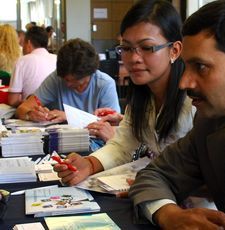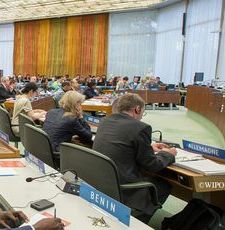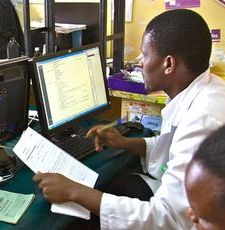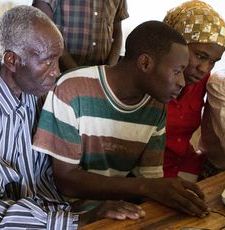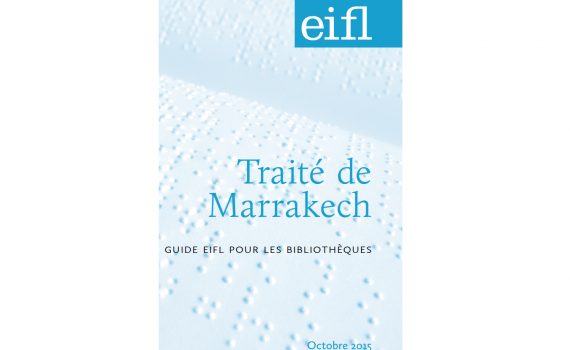
ABOUT THE RESOURCE
The Marrakesh Treaty: an EIFL Guide for Libraries provides an introduction to the Marrakesh Treaty for persons with print disabilities, its key provisions and recommendations for national implementation in order to maximize the opportunities it offers to libraries to increase the reading materials available to persons with print disabilities.
Libraries are key to the success of the Marrakesh Treaty for two main reasons. Throughout the world, libraries have a long history serving people with print disabilities, and only blind people’s organizations, libraries and other so-called “authorized entities” can send accessible format copies to other countries. Because the treaty provides countries with important policy options, librarians need to be involved in the development of implementing national legislation to ensure the maximum possible benefit, and to effectively meet the objective of the treaty - to end the book famine for print disabled people.
The EIFL guide - the first of its kind - is in two parts. Part One is a straightforward introduction to the treaty, its key provisions, and the role of libraries in contributing to the treaty’s objectives. Part Two provides a practical interpretation of the major technical provisions, with recommendations, in line with public interest goals of enabling access to knowledge.
This guide, published in October 2015, is a redesigned version of the EIFL guide to the Marrakesh Treaty first published in December 2014.
EIFL thanks M.Cheikh Hamala Diop, Senegal for the translation into French.
Les bibliothèques sont la clé de la réussite du traité pour deux raisons principales. Dans le monde entier, les bibliothèques sont une des principales sources de matériaux pour les aveugles et les déficients visuals, et seules les organisations d’aveugles, les bibliothèques et autres entités dites “autorisées” peuvent envoyer des exemplaires en format accessible vers d’autres pays. Parce que le Traité offre aux pays d’importantes options sur la manière de le mettre en application, les bibliothèques et autres entités autorisées doivent plaider pour obtenir une mise en application qui sert au mieux les intérêts des personnes ayant des difficultés de lecture des textes imprimés.
Le Deuxième Partie donne une interprétation pratique des grandes dispositions techniques, avec des recommendations, en harmonie avec les objectifs d’intérêt public de permettre l’accès aux connaissances.

SHARE / PRINT






